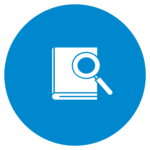Car Insurance can be complicated and confusing, but it doesn’t have to be. Here is a list of common car insurance terms that everyone needs to know.
Our Analysis

Each insured’s auto insurance policy is different in terms of coverage, limits and exclusions. You will need to read your own policy to understand specifically what your policy covers. The information below is meant to be a quick reference guide.
Our Actionable Advice

Common Car Insurance Terms to You Should Know:
- Collision Coverage typically helps pay to repair your vehicle if it’s hit by another vehicle or object. Your insurance company and the other person’s insurance company will determine whose policy pays for damages based on the police report.
- Comprehensive Coverage typically helps pay to repair your vehicle if it is damaged by something other than a collision, like theft, vandalism, fire, storms, floods, hitting an animal, falling trees, or hail.
- The Deductible is the amount an insured pays for an accident/loss before the insurance company pays for approved damages up to the limits listed on the policy.
- The Declarations Page, also known as the Dec Page, is one of the first pages of your insurance policy. It lists everything about your policy, including what’s covered, your dollar limits for each coverage, and your deductible. It also lists who is insured and which vehicles are insured.
- Liability Coverage typically helps pay for injuries to others (bodily injury) or damage to other’s property (property damage) if you are responsible for a vehicle accident. Bodily injury may cover medical bills or legal costs if you are sued. Property damage may cover the repair or replacement of another person’s property, such as a fence.
- Loss History is a record of insurance claims and losses for each vehicle that is insured. Insurance companies monitor this for each vehicle and use it to determine rates/premium increases. They also monitor other police citations for each insured driver.
- Medical Payments Coverage is an optional coverage that may help pay medical bills after your deductible and up to your coverage limit after an accident.
- Rental Reimbursement Coverage helps to reimburse you for the cost of a rental car if your insured car is damaged by a problem covered by your policy.
- Roadside Assistance Coverage is an optional coverage that applies to a car that needs to be towed unrelated to an accident and typically provides towing up to a certain distance listed on your policy.
- Uninsured Motorist Coverage may help pay to repair your vehicle if the other driver is uninsured or fled the scene of an accident.
- An Umbrella Policy is a separate policy that provides additional limits beyond your existing auto insurance limits. We highly recommend that our clients consider adding this to their insurance coverage.
- Bundle and Save is an insurance term that means combining your auto and home insurance with the same insurance company. The advantage is that most insurance companies provide discounts if you have multiple policies with them.
The Big Takeaway

Kristi, our Home and Auto Insurance expert, is in your corner. If you have questions about your Car Insurance or would like us to review your policy to ensure you are adequately covered, please email Kristi or call her at 678-906-2008 ext. 1209.
